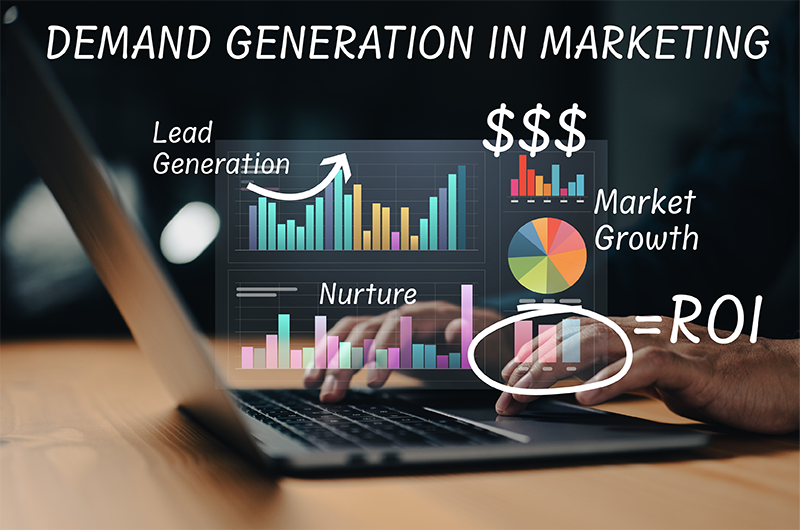Unveiling Buying Intent in B2B Lead Generation
- Diane Dawkins

- Sep 3, 2023
- 3 min read
Updated: Oct 8, 2023
In the world of B2B lead generation, identifying potential buying intent is crucial for businesses to optimize their sales efforts. With the rise of digital marketing and the abundance of information available to buyers, it has become increasingly challenging to separate genuine prospects from mere window shoppers. This is where scoring engagement comes into play. By evaluating and quantifying the level of engagement exhibited by leads, businesses can prioritize their efforts and focus on those most likely to convert into customers. In this article, we will explore why scoring engagement is important in identifying potential buying intent in B2B lead generation.

1. Efficient Allocation of Resources
Scoring engagement allows businesses to allocate their resources more efficiently. By assigning a score to each lead based on their level of engagement, companies can prioritize their efforts and focus on leads that exhibit a higher likelihood of converting. This ensures that sales teams are not wasting time and resources on leads that are unlikely to result in a sale. By focusing on leads with higher engagement scores, businesses can increase their conversion rates and maximize their return on investment.
2. Identifying Active Buyers
Scoring engagement helps businesses identify active buyers who are actively researching and considering their products or services. By tracking various engagement metrics such as website visits, content downloads, email opens, and social media interactions, businesses can gauge the level of interest and intent exhibited by leads. Leads with high engagement scores are more likely to be actively seeking a solution and are therefore more likely to convert into customers. By identifying these active buyers, businesses can tailor their sales and marketing efforts to meet their specific needs and increase the chances of closing a deal.
3. Personalized and Targeted Approach
Scoring engagement enables businesses to adopt a personalized and targeted approach towards their leads. By analyzing the engagement data, businesses can gain insights into the specific interests and preferences of each lead. This allows them to tailor their communication and marketing efforts to address the specific pain points and requirements of each lead. By providing relevant and personalized content, businesses can build trust and credibility with their leads, increasing the chances of conversion. Scoring engagement helps businesses deliver the right message to the right lead at the right time, enhancing the overall customer experience.
4. Lead Nurturing
Scoring engagement plays a crucial role in lead nurturing. Not all leads are ready to make a purchase immediately, and many require nurturing and guidance throughout their buying journey. By scoring engagement, businesses can identify leads that are in the early stages of the buying process and focus on nurturing them with relevant and valuable content. This helps build a relationship with the lead, establish credibility, and position the business as a trusted advisor. As the lead progresses through the buying journey, their engagement score can be adjusted accordingly, allowing businesses to adapt their nurturing strategies accordingly.
5. Sales and Marketing Alignment
Scoring engagement promotes better alignment between sales and marketing teams. By implementing a scoring system, both teams can agree on the criteria and metrics used to evaluate engagement. This alignment ensures that both teams are on the same page and working towards the same goal – converting leads into customers. Scoring engagement provides a common language and framework for both teams to assess lead quality and prioritize their efforts. This collaboration leads to improved communication, increased efficiency, and ultimately, higher conversion rates.
Conclusion
In the competitive landscape of B2B lead generation, scoring engagement is a powerful tool for businesses to identify potential buying intent. By efficiently allocating resources, identifying active buyers, adopting a personalized approach, nurturing leads, and aligning sales and marketing efforts, businesses can increase their chances of converting leads into customers. Scoring engagement allows businesses to focus their efforts on leads that exhibit a higher likelihood of conversion, resulting in improved efficiency, higher conversion rates, and ultimately, increased revenue. In the ever-evolving world of B2B lead generation, scoring engagement is a vital component for success.
Written by: Diane Dawkins

Diane is a seasoned marketing professional with a wealth of experience in marketing communications and digital marketing. With a Master's degree in Marketing Management and over 20 years of industry experience, Diane has worked with Fortune 100 companies and well-known B2B businesses.




Comments